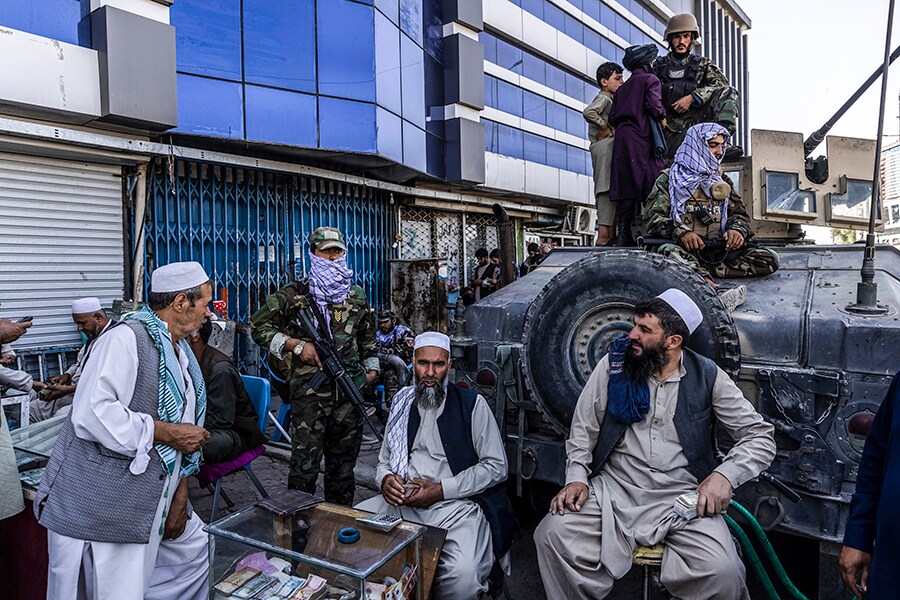
Short on money, legal and otherwise, the Taliban face a crisis
The Taliban won the war in Afghanistan and an economic crisis may be their prize
 Taliban fighters guard money-changers outside the main currency exchange market in Kabul. The Taliban has long tapped informal lenders and opium to fund Afghanistan’s insurgency. Image: Victor J. Blue/The New York Times
Taliban fighters guard money-changers outside the main currency exchange market in Kabul. The Taliban has long tapped informal lenders and opium to fund Afghanistan’s insurgency. Image: Victor J. Blue/The New York Times
As Afghans pay surging prices for eggs and flour and stand in long lines at the bank, money changers like Enayatullah and his underground financial lifeline have found themselves in desperate demand.
Enayatullah — his family name withheld — holds down a tiny point in a sprawling global network of informal lenders and backroom bankers called hawala. The Taliban used hawala to help fund their ultimately successful insurgency. Many households use it to get help from relatives in Istanbul, London and Doha, Qatar. Without cash from hawala, economic life in whole swaths of Afghanistan would come to a crashing halt.
That is now a very real possibility. Foreign aid has dried up. Prices are surging. The value of the afghani currency is tumbling. The country’s $9.4 billion in reserves have been frozen.
And hawala will not be enough, said Enayatullah, adding that people’s need for money has become so desperate in the last week he raised his commission to 4% per transaction, about eight times his usual rate. The system is now struggling with a lack of money, leading the Taliban and dealers themselves to rein in activity to preserve cash.
“The demand,” Enayatullah said, “is too much.”
©2019 New York Times News Service




